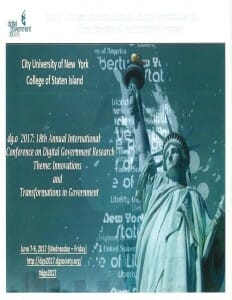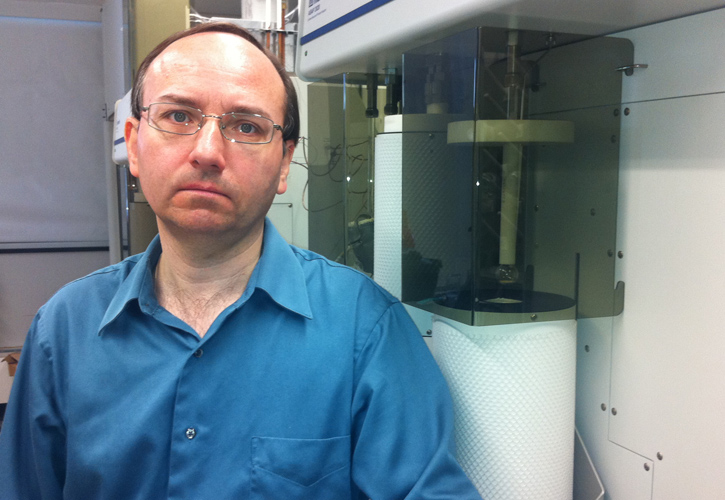Researchers and practitioners joined forces as the College of Staten Island welcomed members of the Digital Government Society (DGS) and the Intelligent Community Forum (ICF) for dg.o 2017, the 18th Annual International Conference on Digital Government Research.
This year’s event, running from June 7 to 9, focused on Innovations and Transformations in Government, with a particular emphasis on the role of technology in driving, shaping, and monitoring these changes. Co-hosted by DGS and ICF, keynote speakers and panelists engaged 250 attendees from 26 countries in joint plenary panel sessions. Notable conference chairs including Soon Ae Chun (current DGS President, Professor of Information Systems, and CUNY Doctoral faculty in Computer Science), and Beth Simone Noveck (Director of the GovLab MacArthur Research Network and former Obama-Biden transition team member) added to the progressive dialogue throughout the conference. Similarly, speakers such as Louis A. Zacharilla (co-founder of ICF), James Oddo (Staten Island Borough President), and Joel Gurin (President and Founder of the Center for Open Data Enterprise), contributed valuable insights linking research and practice. Speaker sessions addressed topics such as the information and communication challenges facing connected communities, organizational transparency in the age of open-source data, public policy analysis, and the role of artificial intelligence in e-government.
The first day of the event was reserved for pre-conference workshops, tutorials, and PhD colloquia for DGS members, while ICF attendees participated in a Community Accelerator Day – a master class for community developers. This year’s master class explored “the Internet of Cities,” focusing not on the connections among machines but on the connections among people in a specific place on Earth. These places foster connections that are enabled and empowered by information and communications technology. Keynote speakers and panelists spoke on the importance of understanding this dynamic, revealing that the current systems that connect cities together are both outdated and unsustainable. The proposed solution is to ensure that sustainability, accessibility, and affordability all need to be implemented as city populations continue to grow.

















